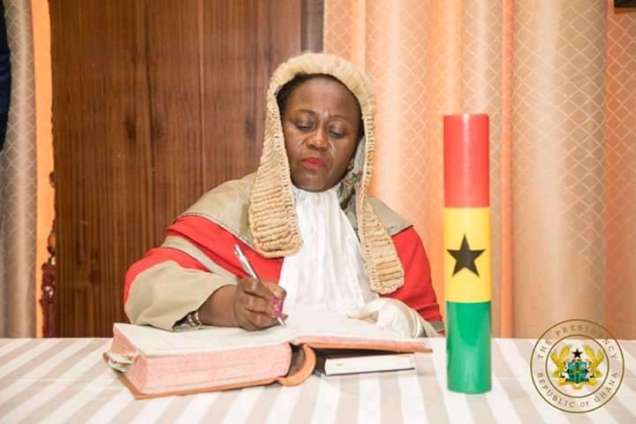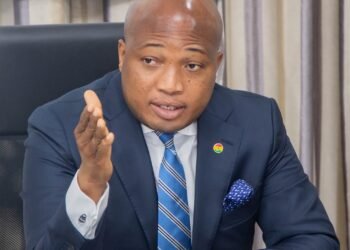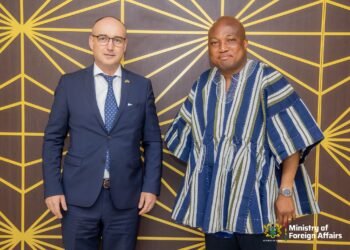Kwaku Asare Azar has noted that while the Ghanaian government (Yaanom) supports the Chief Justice’s authority to reconfigure court panels, the Pakistani court has conversely denied its Chief Justice the same power to reconstitute panels.
He lambasted Ghana’s move to grant the Chief Justice sweeping powers, arguing that it perpetuates a harmful concentration of authority and undermines the principles of judicial accountability.
He noted that among other things the Pakistan Court indicated that “We find it essential to underline that in order to strengthen our institution and to ensure public trust and public confidence in our Court, it is high time that we revisit the power of “one-man show” enjoyed by the office of the Chief Justice of Pakistan.
“This Court cannot be dependent on the solitary decision of one man, the Chief Justice, but must be regulated through a rule-based system approved by all Judges of the Court under Article 191 of the Constitution, in regulating the exercise of its jurisdiction under Article 184(3) including the exercise of suo motu jurisdiction; the constitution of Benches to hear such cases; the constitution of Regular Benches to hear all the other cases instituted in this Court; and the constitution of Special Benches”.
Kwaku Asare Azar
Kwaku Azar further emphasized that the notion of a ‘one-man show’ is not only archaic, outdated, and obsolete but also fundamentally at odds with the principles of good governance (GOGO) and modern democratic values, which prioritize inclusivity, accountability, and collective decision-making.
He further noted that the ‘one-man show’, whereby the Chief Justice exercises unbridled authority, concentrates power in the hands of a single individual, creating a systemic vulnerability to the arbitrary exercise of power, potential despotism, and the erosion of democratic safeguards.
Kwaku Azar emphasized that, in stark contrast, a collegial system with built-in checks and balances serves as a vital safeguard against the abuse and misuse of power, fostering a culture of transparency, accountability, and collective responsibility, which ultimately prevents errors and ensures more informed decision-making.
Kwaku Azar Cautions Against Unchecked Power
Moreover, Kwaku Asare Azar warned that when one individual wields excessive power, the institution becomes vulnerable to autocratic tendencies, insularity, and a disconnect from democratic principles, ultimately threatening the very fabric of democratic governance and the rule of law.

He cautioned that unchecked power can lead to the imposition of personal agendas, resulting in policies that potentially infringe upon the fundamental rights and interests of the people, thereby undermining the democratic principles of representation, accountability, and the protection of the public good.
As such, Kwaku Azar emphasized that Ghanaians must remember that the legitimacy and strength of their institutions rely heavily on public trust and confidence and that upholding the principles of transparency, accountability, and democratic governance is crucial to maintaining the public’s faith in these institutions.
He reiterated that the very foundation of this Court and the entire justice system relies on the trust and confidence that the public has placed in it and that maintaining this trust is essential to the integrity and legitimacy of the institution.
“Therefore, [the] one-man show needs a revisit as it limits diverse perspectives, concentrates power, and increases the risk of an autocratic rule. On the other hand, the collegial model ensures good governance as it rests on collaboration, shared decision-making, and a balance of power to ensure the best outcome. The problem is not our laws or our Constitution”.
Kwaku Asare Azar
He observed that Ghanaians often paradoxically condone and even celebrate authoritarian tendencies, while simultaneously criticizing the country’s laws and institutions for perpetuating the very same problems, highlighting a need for introspection and a shift in perspective.
Kwaku Azar’s comments come on the heels of the Court of Appeal’s ruling, which dismissed the appeal filed by Hon. Samuel Okudzeto Ablakwa’s legal team, challenging the reconstitution of the panel presiding over the case involving Rev. Kusi Boateng and Samuel Okudzeto Ablakwa.
READ ALSO: Gershkovich Appears In Court For Closed Door Trial























